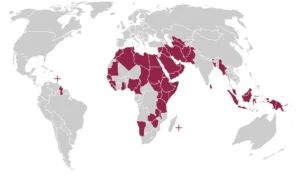Colorado has emerged as a haven for safe and legal abortion access following the landmark decision by the U.S. Supreme Court overturning Roe v. Wade in June 2023.
This article provides a comprehensive overview of Colorado’s abortion laws in 2024, outlining the legal landscape, restrictions, and resources available to women seeking abortion care.
Legal Status of Abortion in Colorado
Colorado has taken proactive steps to codify abortion rights into state law. In 2022, the state passed the Reproductive Health Equity Act (RHEA), which established abortion as a fundamental right and removed many previous restrictions. This legislation ensures continued access to abortion services even after the federal overturn of Roe v. Wade.
Key Provisions of the Reproductive Health Equity Act (RHEA)
- Abortion as a Fundamental Right: RHEA recognizes abortion as a fundamental right protected by the Colorado Constitution. This ensures a strong legal foundation for abortion access in the state.
- Qualified Healthcare Professionals: The act expands the pool of qualified healthcare providers who can perform abortions. This includes physician assistants, advanced practice nurses, and other qualified healthcare professionals, potentially increasing access to care, particularly in rural areas.
- Parental Notice Requirement: Parental involvement is still required for minors seeking abortions. However, there are provisions for judicial bypass, allowing a judge to waive the notification requirement in specific circumstances.
- State Medicaid Funding: [NOTE: This point requires clarification] Colorado currently restricts Medicaid funding for abortion services except in cases of rape, incest, or when the mother’s life is in danger. Efforts are ongoing to overturn this restriction and expand Medicaid coverage for abortion.
Gestational Age Limits
Colorado has one gestational age limit on abortion.
- 22 Weeks: A 2020 law prohibits abortions after 22 weeks of pregnancy except in limited circumstances to protect the life or health of the mother.
Additional Considerations
- Public Funding: As mentioned earlier, Colorado restricts Medicaid funding for most abortions. However, the state does provide funding for family planning services, which can help with contraception and prevent unintended pregnancies.
- Public Clinics: Several public clinics throughout Colorado offer abortion services and other reproductive healthcare options.
- Private Insurance: Most private insurance plans in Colorado cover abortion services. It’s advisable to check with your specific insurance provider to understand their coverage details.
- Financial Assistance: Several organizations offer financial assistance to help women cover the costs of abortion services.
Resources for Women Seeking Abortion Care in Colorado
Here’s a table outlining resources available to women seeking abortion care in Colorado:
| Resource | Description | Website |
|---|---|---|
| Colorado Department of Public Health and Environment (CDPHE) | Provides information on abortion clinics, financial assistance, and other reproductive health services. | https://cdphe.colorado.gov/ |
| Planned Parenthood of the Rocky Mountains | Offers abortion services, along with other reproductive healthcare options. | https://www.plannedparenthood.org/planned-parenthood-rocky-mountains |
| Guttmacher Institute | Provides national data and research on abortion access. | https://www.guttmacher.org/ |
| National Network of Abortion Funds | Offers financial assistance to help women cover the costs of abortion services. | https://abortionfunds.org/ |
Potential Changes to Colorado’s Abortion Laws
While Colorado offers a relatively accessible legal framework for abortion services, efforts to further expand or restrict access might continue. Here are some potential developments:
- Efforts to Remove the Medicaid Funding Restriction: Advocacy groups are working to overturn the current restriction on Medicaid funding for abortion services.
- Potential for Further Restrictions: Anti-abortion groups might introduce legislation to impose additional restrictions on abortion access in the future. However, with the strong legal foundation established by RHEA, such efforts are likely to face significant challenges.
Conclusion
Colorado stands as a leader in protecting abortion rights in a post-Roe v. Wade landscape. The state’s proactive legislation and ongoing efforts to expand access ensure a relatively safe and legal environment for women seeking abortion care.
This article provides a starting point for women seeking information and resources for abortion services in Colorado.

![Understanding Abortion Laws in Colorado [2024 Rule]](https://trendingwork.com/wp-content/uploads/2024/06/Understanding-Abortion-Laws-in-Colorado-2024-Rule.webp)

